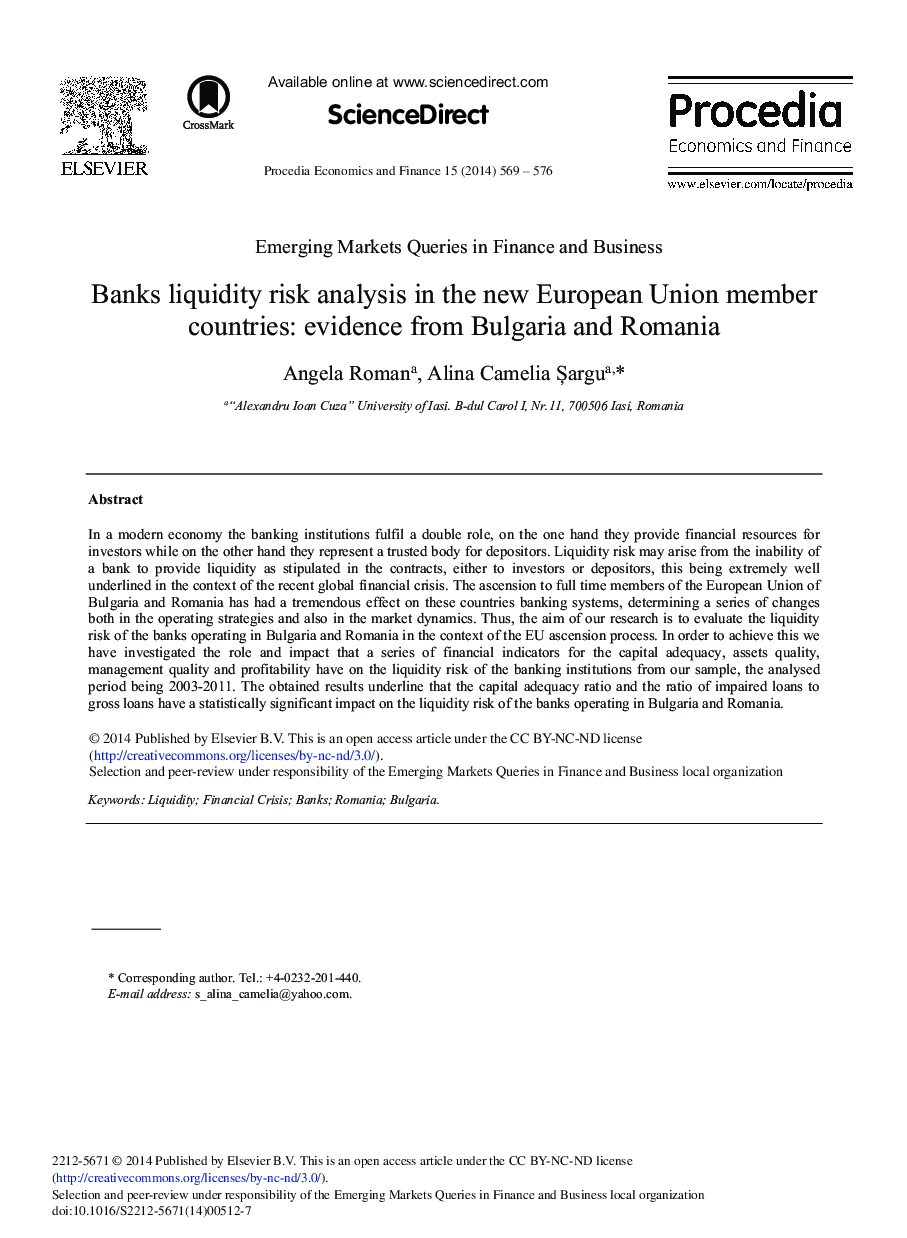| Article ID | Journal | Published Year | Pages | File Type |
|---|---|---|---|---|
| 983043 | Procedia Economics and Finance | 2014 | 8 Pages |
In a modern economy the banking institutions fulfil a double role, on the one hand they provide financial resources for investors while on the other hand they represent a trusted body for depositors. Liquidity risk may arise from the inability of a bank to provide liquidity as stipulated in the contracts, either to investors or depositors, this being extremely well underlined in the context of the recent global financial crisis. The ascension to full time members of the European Union of Bulgaria and Romania has had a tremendous effect on these countries banking systems, determining a series of changes both in the operating strategies and also in the market dynamics. Thus, the aim of our research is to evaluate the liquidity risk of the banks operating in Bulgaria and Romania in the context of the EU ascension process. In order to achieve this we have investigated the role and impact that a series of financial indicators for the capital adequacy, assets quality, management quality and profitability have on the liquidity risk of the banking institutions from our sample, the analysed period being 2003-2011. The obtained results underline that the capital adequacy ratio and the ratio of impaired loans to gross loans have a statistically significant impact on the liquidity risk of the banks operating in Bulgaria and Romania.
